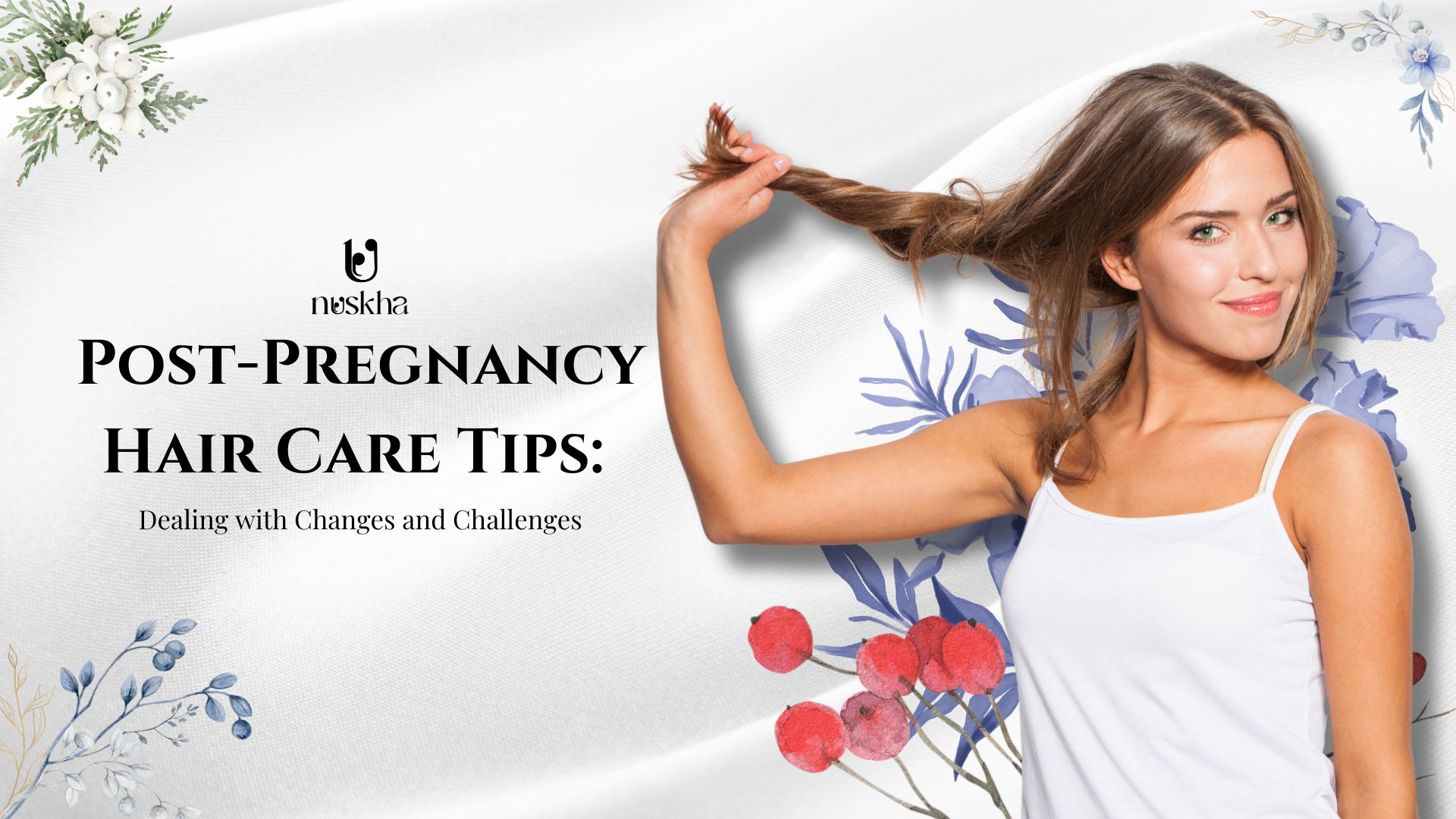
Even though it's lovely to welcome a new baby into the world, the physical changes that occur after giving birth may be rather daunting. Both the mind and the body undergo radical transformations as a result of this new life. Loss of hair is at the top of the list, right up there with one of the least talked-about changes: your hair. As a result of hormonal changes after delivery, postpartum hair loss is rather frequent. You can take care of your hair and deal with this phase:
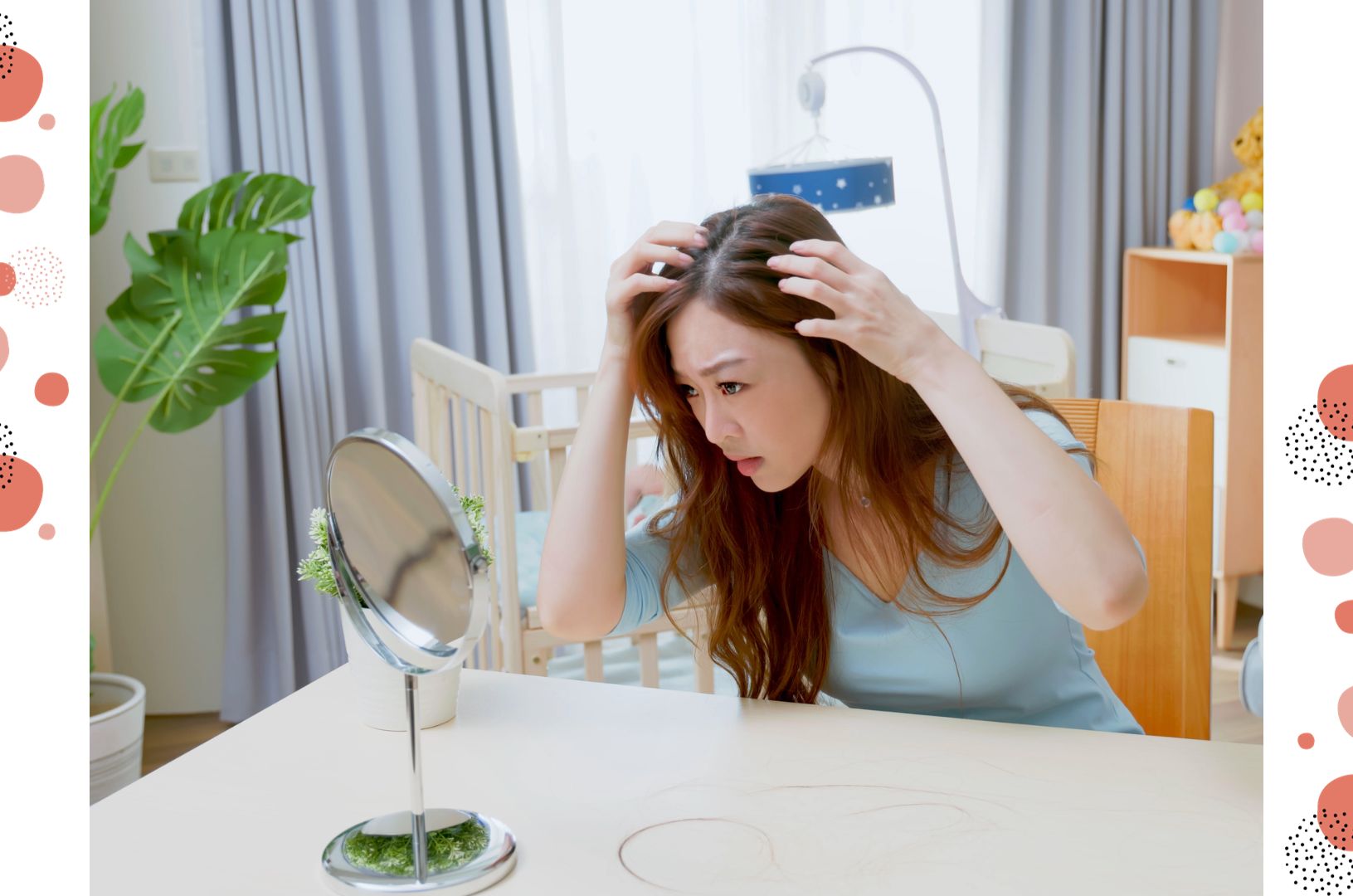
Temporary hair loss may occur after birth. Patience is required; it is inherent to the process. After a while, the hair loss would either cease or significantly diminish. Do your best to relax at this time since worrying about your hair loss will only make it worse.
♦ Read also: Top 10 Foods to Avoid During Pregnancy for a Healthy Baby
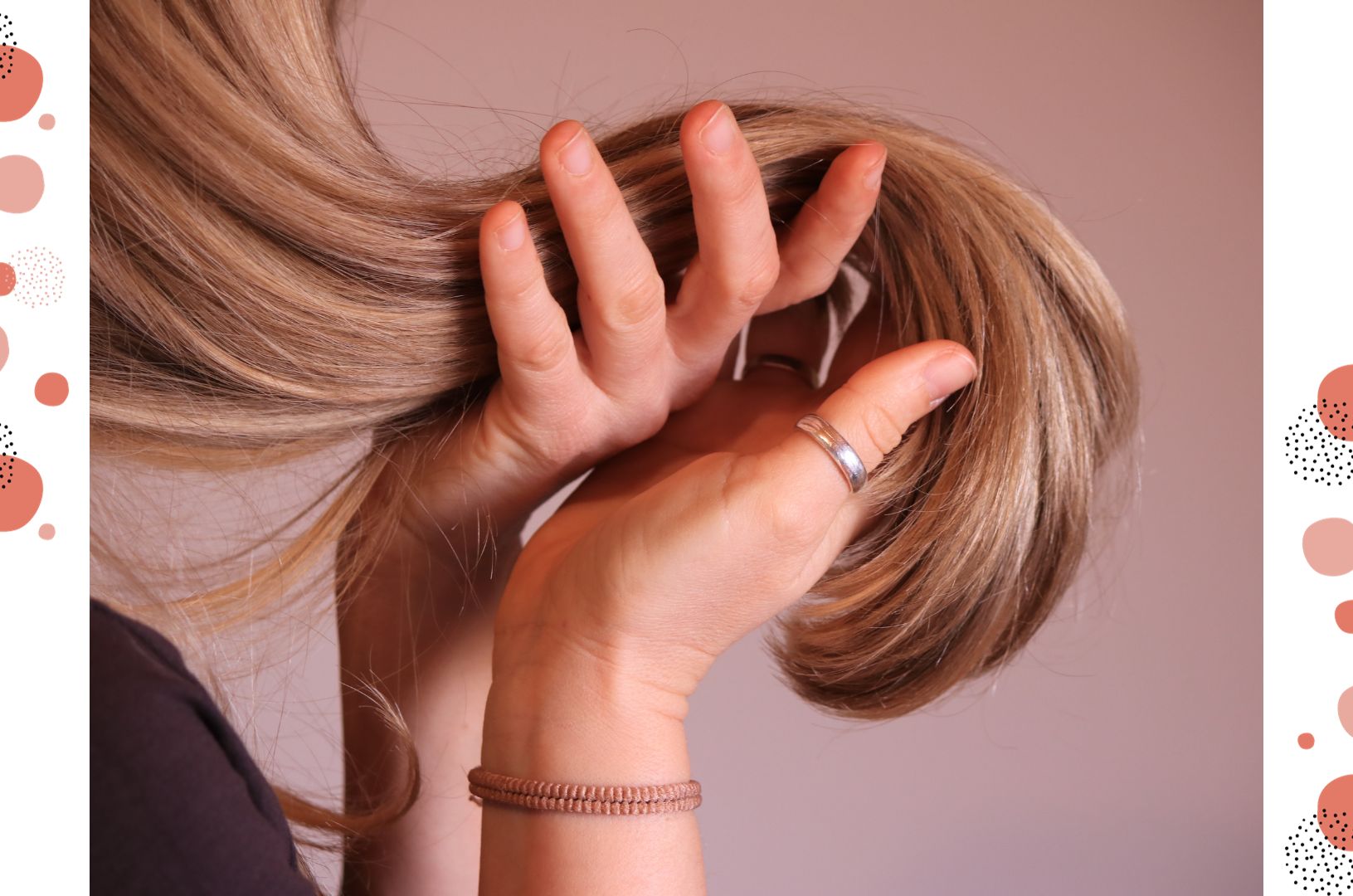
To keep your hair from being too stressed, use gentle shampoos and conditioners. You risk more damage to your hair and irritation to your scalp if you use harsh shampoos and Hair oils. Prevent further harm to your hair by using natural and organic products.
♦ Suggested Products:- Nuskha Hair Oil
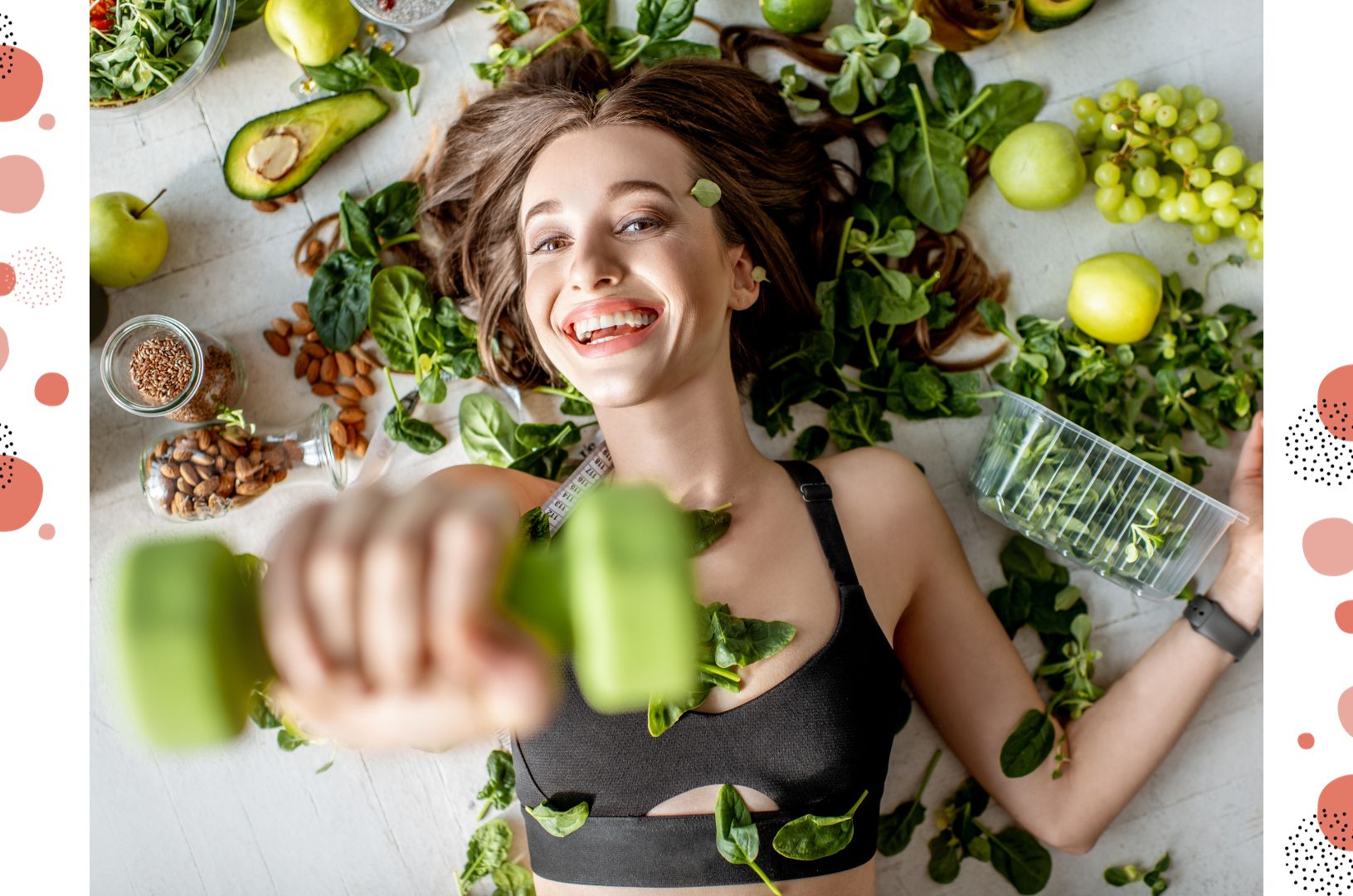
After giving birth, eating a post-pregnancy diet rich in nutrients might help stimulate healthy hair development. Get the nutrients your hair needs by maintaining a healthy diet full of vitamins and minerals. If you're looking for Ayurveda-approved dishes like Ajwain laddoo, Haldi ke laddoo, Gond ke laddoo, Ragi Laddoo, and many more, Nushka Kitchen is the place to go.
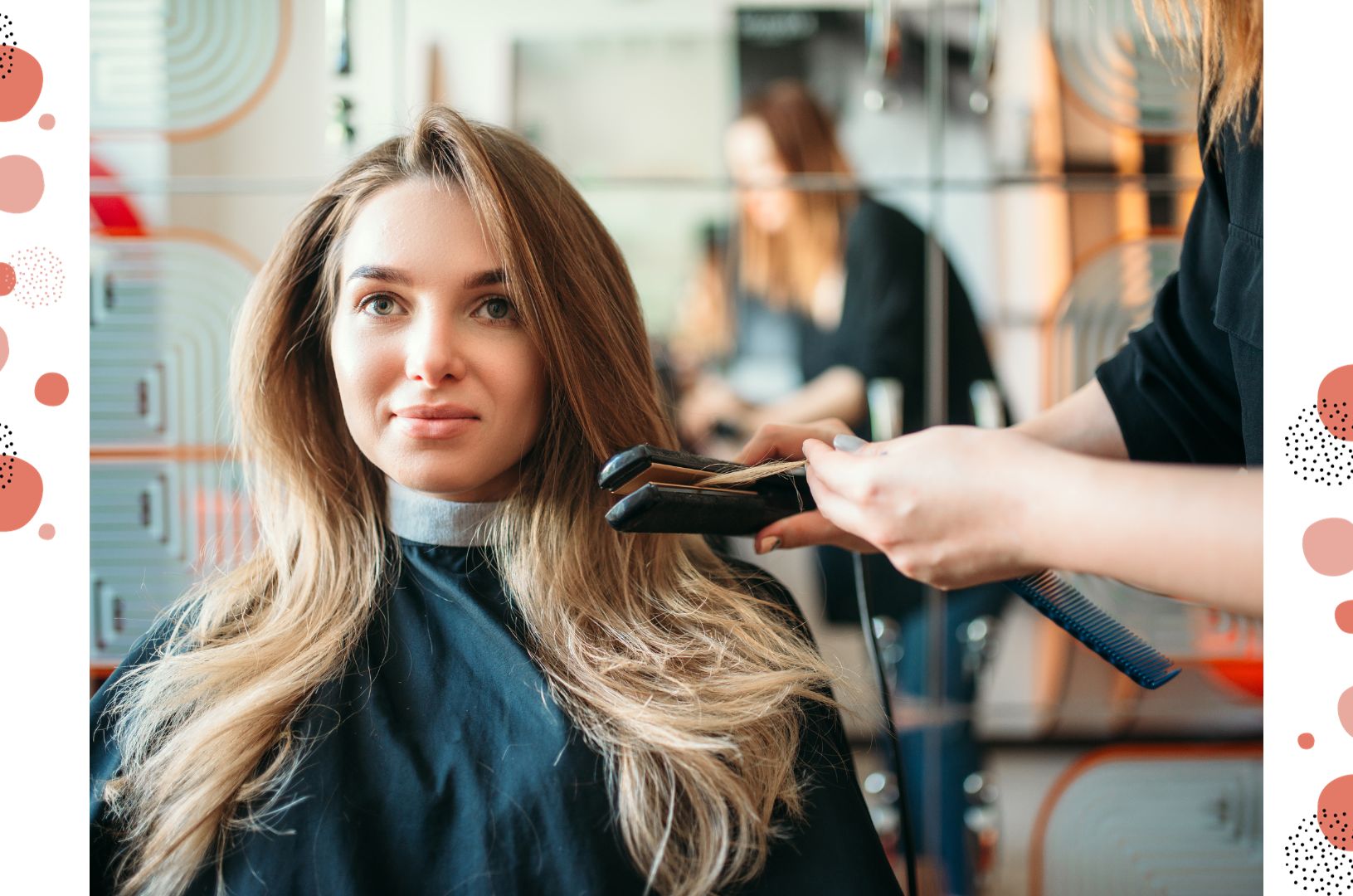
To alleviate tension, take a vacation from tight hairstyles and heat tools. Do not pull your hair taut when styling it in a ponytail or any other manner. Hair loss, irritation, and damage from heated styling tools are all possible. As a result, the hair becomes brittle and dry. Wear something loose if you want to feel comfy.
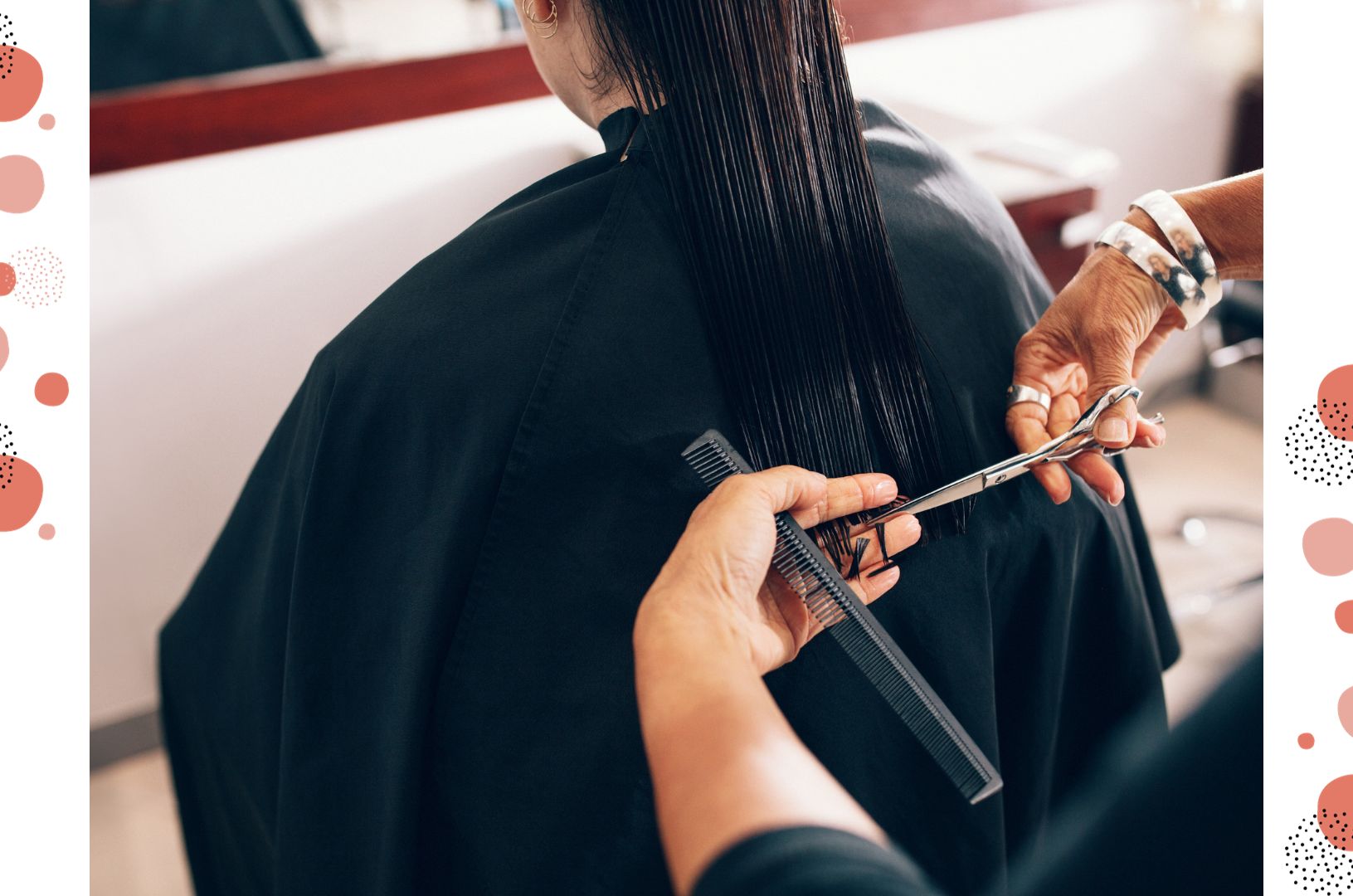
Regular haircuts keep hair in good condition and hide thinning. Establish a regular schedule for cutting your hair at this stage. A trim once or twice per month should do the trick. Hair growth would be encouraged as well. However, to keep your hair in good condition, stay away from heat-styling appliances and products.
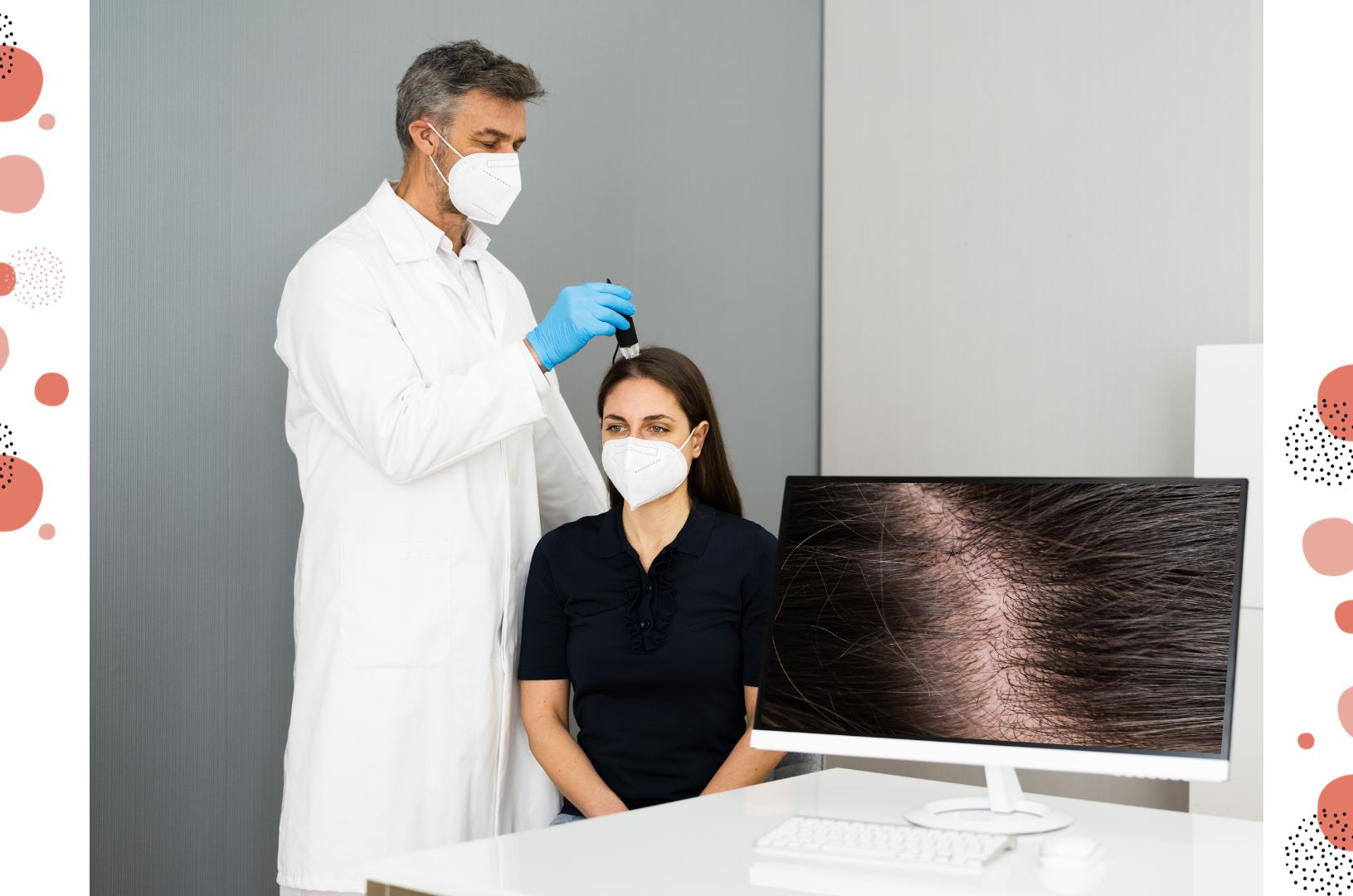
Seek the advice of a hair care expert if you are concerned about the persistence of hair loss. They are also capable of diagnosing additional issues, should they arise. Medical experts may also be able to recommend products and treatments that work best with your hair and scalp.
Temporary changes may occur to your hair after giving birth. Your hair will return to its healthy state as soon as you learn to embrace this transition with patience, the right postpartum diet and self-care. Patience, the correct postpartum nutrition, some ideas, and expert help will get you over this obstacle. These changes are natural, so try to embrace them. Motherhood is a wonderful stage of life. Healing and post-pregnancy care might go more quickly if you stick to a balanced diet.
♦ Read also: Body Image After Baby: Embracing Changes and Celebrating You
Postpartum hair changes may be managed by adjusting your hair care routine to be gentle, using mild washes, and avoiding overheated styling equipment. After giving birth naturally, hair growth may be reduced with a diet rich in proteins, vitamins, and biotin. Use nourishing hair treatments, stay away from tight hairstyles, and brush your hair softly to reduce breaking. Aloe vera or coconut Hair oil massages are examples of natural treatments that might help your hair grow strong and healthy. Advice tailored to your needs should always be obtained from a healthcare professional.
Reducing hair growth after childbirth may be achieved naturally by eating a diet high in protein, vitamins, and minerals. Consume a wide variety of nutrient-dense foods, such as leafy greens, seafood, nuts, and eggs. When natural oils like coconut oil are rubbed into the scalp, they improve blood flow, which promotes the development of hair. Some individuals discover that strengthening their hair is possible with natural remedies like aloe vera and onion juice. Before beginning any new therapy, it is advised that you see a healthcare professional since every person's experience is unique.